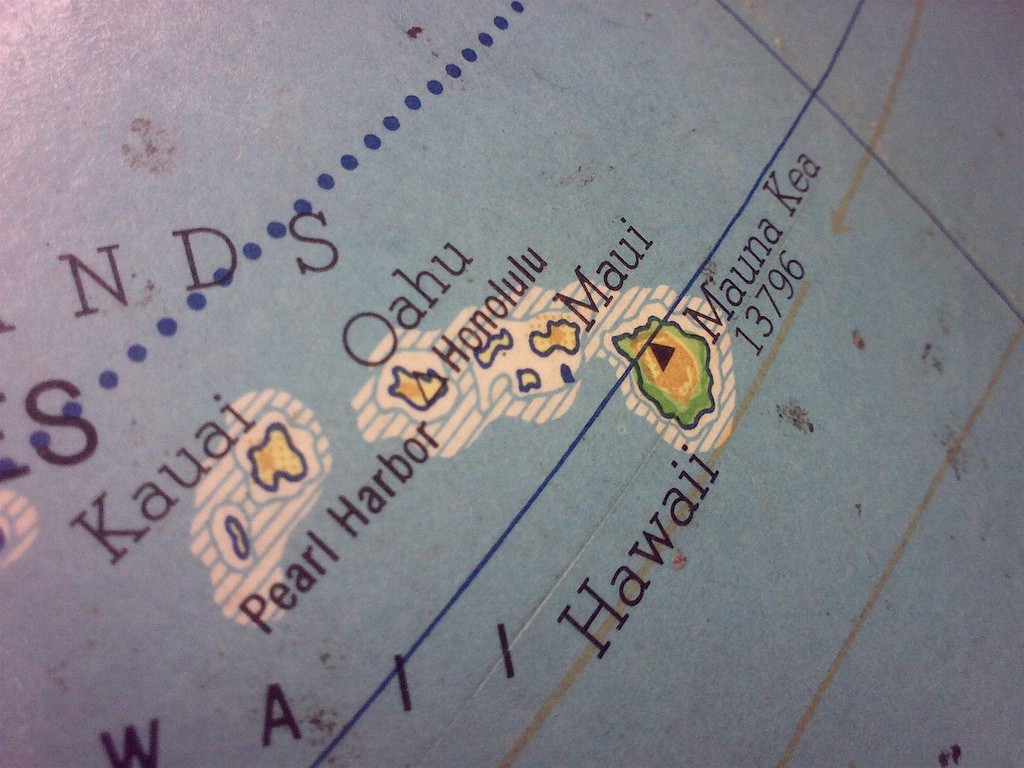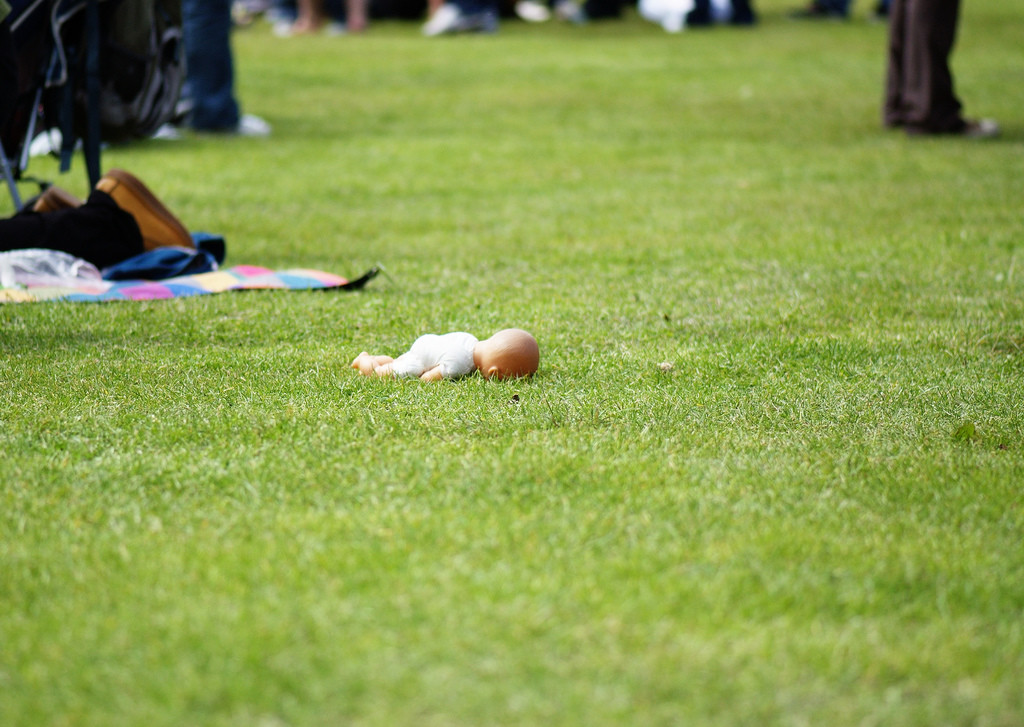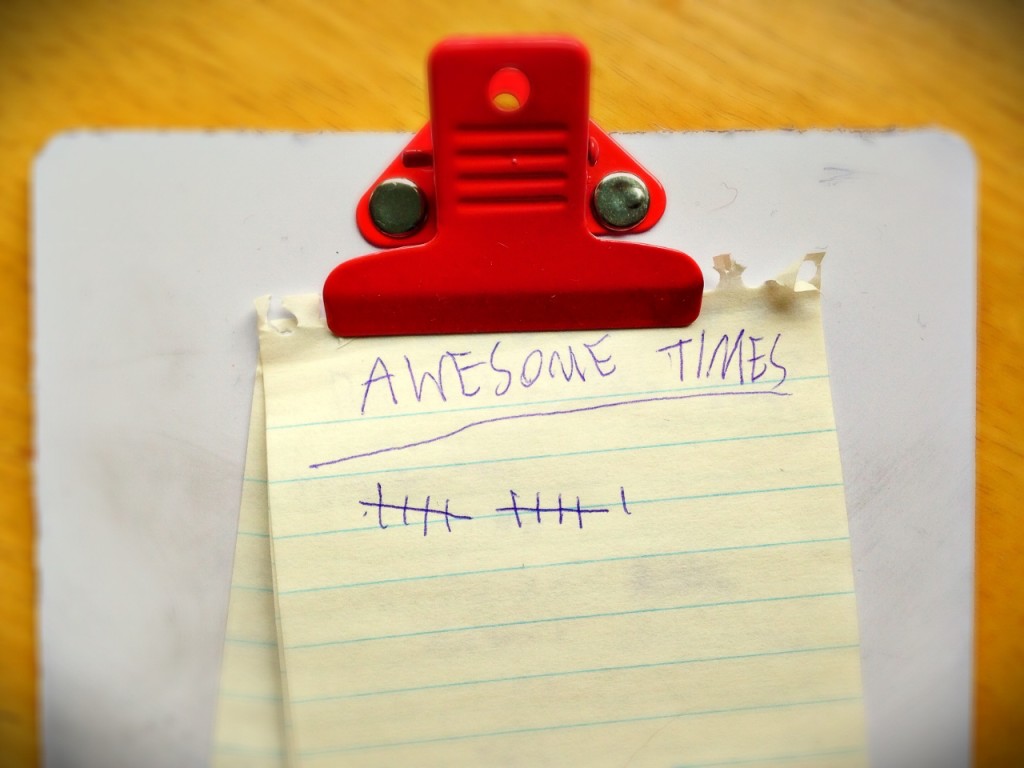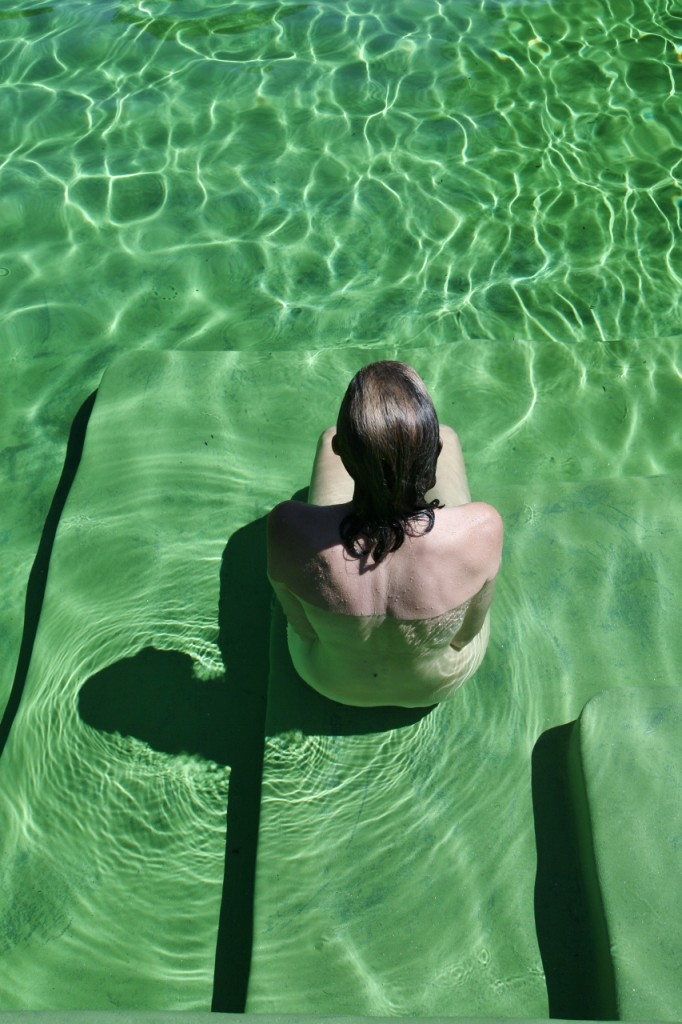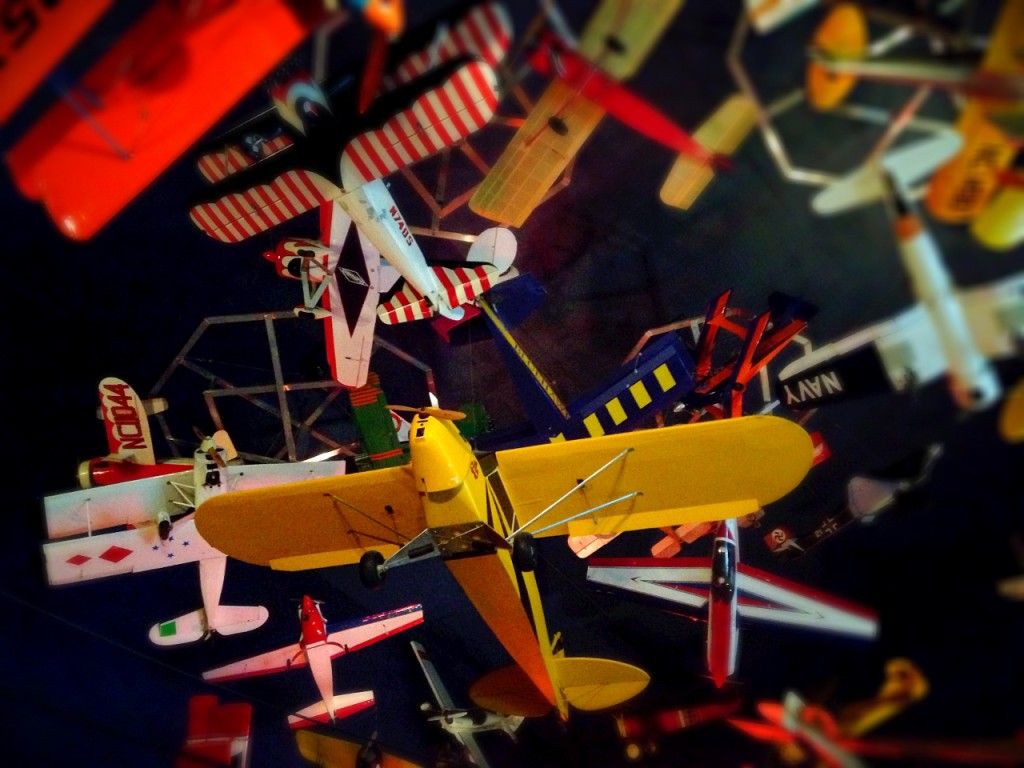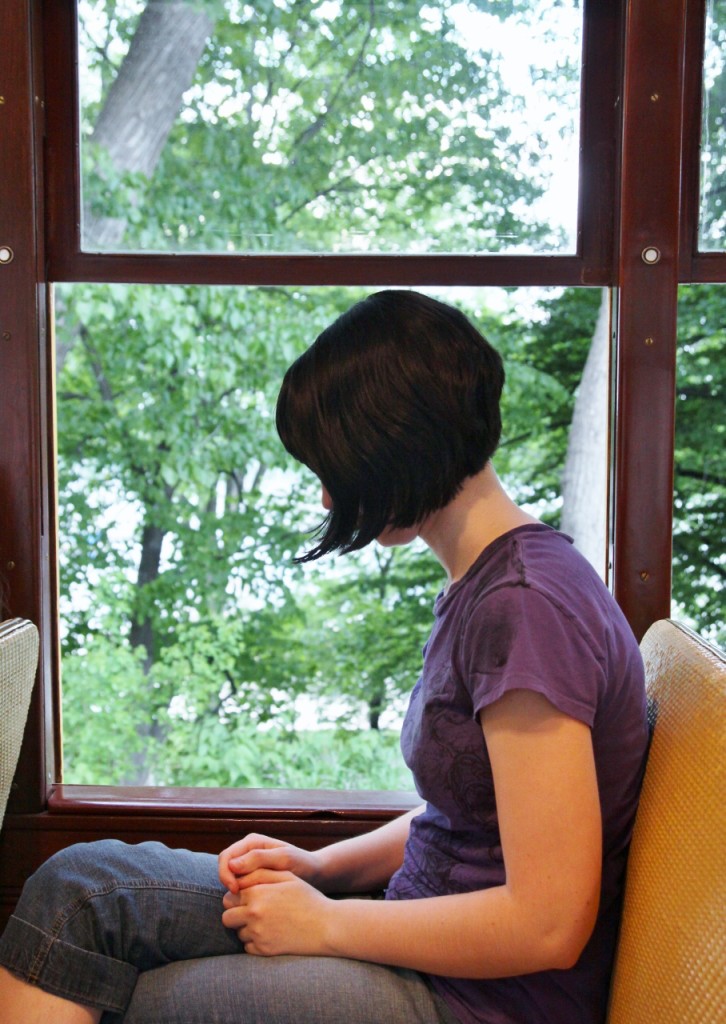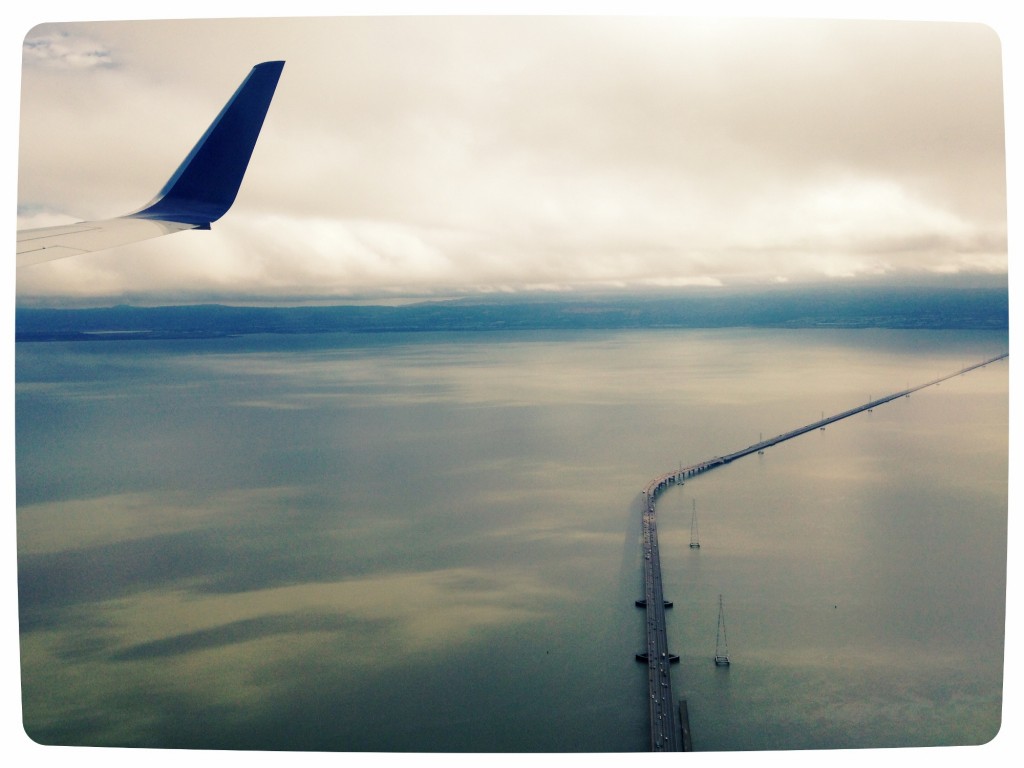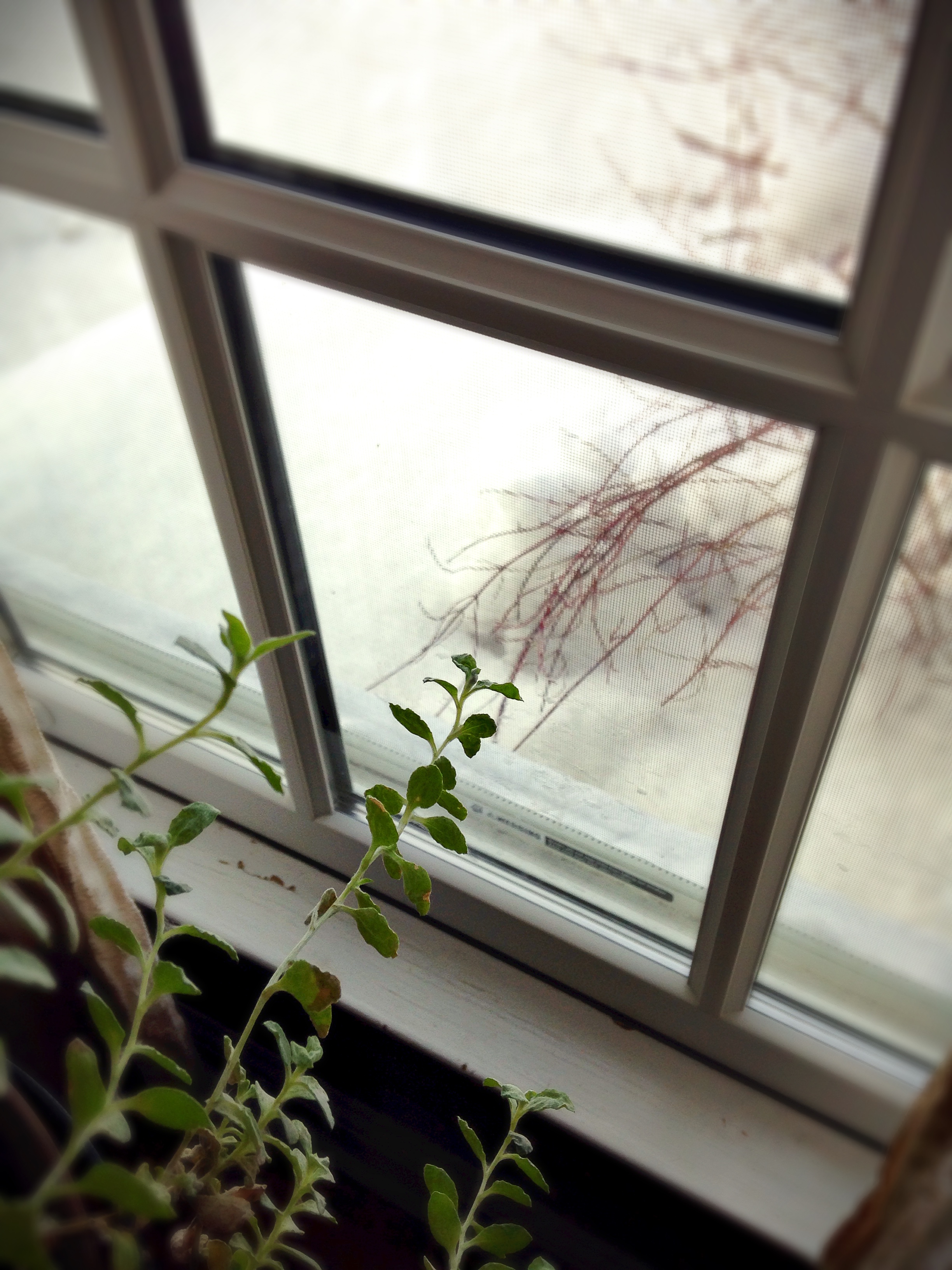
By Gail Griffin
Bob and I came together in middle age, embedded in distinct careers. Of our eighteen years together, we spent sixteen at different academic institutions in different time zones, so summers and Christmas counted heavily. But from the get-go Christmas was a site of struggle. He would have been happy to have nothing to do with the American version of The Holidays for the rest of his life. I convinced him that Christmas is like Christianity: not inherently loathsome, only rendered so in practice. So we reclaimed it. Gently but firmly we pushed families away and took our own direction. Once we were in a rented cabin in an unincorporated village—really more an accretion of ramshackle structures—eight thousand feet up in the Rockies. We found a tree stand among the junk piled up in a storeroom, bought a tree, and decorated it with white lights and pinecones edged in gold spray paint. Rustic chic at its best.
In 2003 we bought a cabin in northern Michigan, a kind of stake in future unity, and it became the obvious yuletide retreat. The snow was usually deep, the quiet unearthly. Four years after the purchase, Bob retired and moved to Michigan. That Christmas at the cabin was overshadowed slightly by our wedding a week afterward, whose unspoken theme was “Well, Finally.”
Four months and eight days later, as spring was making its slow, tentative appearance in northern Michigan, Bob drowned in the Manistee River, which ran far too close to the cabin. Through the fog of unreality, I heard doors slamming, books closing with a thud, windows being boarded up, all over my life.
•••
Once I went with Bob to San Antonio, where he had a conference. While he conferred, I wandered, scrutinizing the Alamo and hunting down Mexican ceramics and folk art, which I love. I’ve always been especially drawn to the calacas—the skeletal figures in two- and three-dimensional art, dressed brightly and placed in all manner of tableaux: a red-frocked singer fronts a band, a happy couple dances. Weddings and marriage constitute a common trope. The shifty irony embedded in the art form fascinates me. I can never figure out if death is being mocked or doing the mocking of human pretensions and institutions.
I bought a Christmas scene enclosed in a box, glass on its front and top. Six figures celebrate a fiesta de Navidad, four dressed elegantly, two utterly naked in their bones. All of them hold one hand out, as if grasping a nonexistent glass. A clock hangs on one wall, a radio on another. Lining the back wall are portraits of saints, the Holy Virgin, and the birthday boy himself, along with a large decorated wreath. A skeletal dog lies under a table spread with plates and bowls of food. Along its back edge are candles—and a skull, so that the dead can contemplate themselves, I guess.
As I move into the fall after that first dreadful summer without Bob, Christmas begins to look a lot like this.
I can’t imagine a way to endure this year’s holidays. The homes of family and friends are readily available to me, and also impossible. I would be doubly trapped, by my grief and by someone else’s routines, possessions, floor plan, kindness, traditions, and holiday cheer. I cannot bear any of it. So in late October I put Bob’s travel agent to work. The Caribbean, I say; maybe Jamaica.
Why? The Caribbean is not my place. My notion of a beautiful beach is Lake Michigan, and wonderful weather is between sixty and eighty degrees. I hate the whole concept of a resort, and I have never owned anything like the requisite wardrobe. I dislike sitting in the sun. Rum and tequila sicken me; in warm weather I drink gin and tonics, strong, sharp, and icy. But I went to Negril twenty years ago and what I crave now is what I experienced then (minus the unfortunate reaction to a brownie containing preternaturally potent local ganja). I want exactly that feeling of being not where I belonged but in Neverland. As usual, my critical mind interrupts, reminding me that Neverland is one of the imperialist fantasies that have played an insidious role in the history of those islands. That voice is acknowledged and overruled. I want to bury myself in what I can pretend is unreality until the freaking holidays go away.
It’s late to be booking for Christmas, but she knows the situation and finagles me ten exorbitant days at the mythic Jamaica Inn in Ocho Rios. I try to make a fiction of the trip, to think of myself as some kind of romantic refugee from darkness and horror fleeing to dissipation and mindlessness. My imagination has always saved me; maybe it will fly me right over the worst and land me in a new story.
•••
The night before I am to leave brings what is called in my neck of the woods “wintry mix”—precipitation combining with temperatures hovering around freezing to yield rainy snow, snowy slush, slushy ice. My flight is delayed and I miss my connection, in Memphis of all places. There will be no getting out of the country tonight. Memphis is gray and damp. The Holiday Inn near the airport turns out to be a strangely cavernous, grim place with very long hallways reaching in many directions. There seem to be few guests, and they appear to know each other; there is much talk and laughter in the lobby. My room is at the far end of one of the long, empty corridors. I drop onto the bed and feel myself float away from my body and dissipate. I’ve escaped my life all right, and now I’m in a Stephen King novel.
It’s a motel room, I tell myself, yanking my spirit back. The thing to do is get out of here. I consider the options on a dark near-Christmas day in Memphis. The blues seems appropriate. But a woman traveling alone, utterly ignorant of the city, probably shouldn’t head down to Beale Street for the evening. What else is in Memphis?
It takes me a few moments. Then I grab my second wind, hike to the lobby, go outside, hail a cab, and say, “Graceland.”
The car radio reports that an Iraqi journalist has thrown a shoe at President Bush at a Baghdad press conference two days ago. The driver and I emit simultaneous chuckles. On this trip I am reading Anne Lamott’s Plan B: “I feel that we began witnessing the end of the world in Slo Mo once George W. Bush became president.”
The end of the world, oblivion; what a comfort.
•••
It’s true: the first thing that strikes you is how small Graceland is. You were expecting Tara, and it’s more like the biggest house in a ritzy 1950s suburb called “Tara Hills.”
The weather and perhaps the holiday season have kept the tourists away except for me and a group of Japanese visitors. They’re working with a translator, leaving me essentially alone to wander and ponder. The house is glaring in its sheer ugliness, beginning with the white living room with royal blue and gold drapes and huge peacocks etched into the glass panels around the opening to the music room. In my embarrassment, I feel my northern middle-classness sharply: to Elvis, this was elegance. Gladys’s bedroom, white with heavy royal purple portieres and bedspread, was his way of crowning his mother queen of his universe.
My audio-tour headset features the princess of this weird kingdom, Lisa Marie herself, who shares reminiscences about particular rooms. In the living room she says she knew her father was coming downstairs by the jangling of his bling. In the kitchen, dark with ugly patterned carpeting, she fondly recalls him and his minions cooking up a storm in the middle of the night. What was she doing awake? I wonder. She tells her stories as if they were episodes of Ozzie and Harriet, as if her years in a vacuum-sealed funhouse operating in its own time zone constituted your typical American childhood.
After the luxurious whiteness of the front rooms and Gladys’s bedroom, the rest of Graceland reminds me of Disneyland—every room a different world. A half-flight of stairs down from the kitchen is the Jungle Room, a porch that Elvis enclosed and turned into an ugly little explosion of exoticism, all carved wood and faux-animal hide. Whether we’re in Africa or Asia or South America is irrelevant: we’re Elsewhere, carpeted in a sickly green. Lisa tells me that it later became a recording studio—hence the carpet on the ceiling.
Downstairs, on the basement level, are two rooms that constitute a man cave of sorts, Elvis’s playrooms. A startlingly black and yellow room harbors the bank of three TVs that Elvis used to shoot out on occasion. The room across the hall is mostly taken up by a pool table. What strikes me about both rooms is that, while they are in a basement, Elvis has taken pains to make them seem even more enclosed and bunker-like. The TV room has mirrored walls, which supposedly enlarge a small room, but to my eyes simply make it more claustrophobic: I’m trapped there with myself in an endless reiteration of that very room. The poolroom’s walls are covered in pleated print fabric, floor to ceiling, like one big curtain keeping something hidden. Possibly the décor is meant to suggest a private men’s club. If the front rooms announce the King, these lower spaces, disconnected from each other visually and emphatically self-enclosed, point to someone else, someone who wanted more than anything to hide. I can’t breathe down here, but I get it.
I head outside; the rain has let up. There are a passel of Elvis outbuildings to wander—Daddy Vernon’s office; buildings full of cars; the racquetball court now lined with gold records and awards; the reliquary of memorabilia that I will recall mostly as the Hall of White Jumpsuits, though it also contains the baggy gold blazer I always considered his coolest item. But I head for the Meditation Garden. Given the fountains, the towering granite Christ, the proliferating bright plastic flowers, the religious figurines, and the large pictures framed in sharp red and blue, it’s hard to imagine anybody meditating here for an instant. There is a quartet of graves—Vernon, Gladys, Elvis Aaron, and next to him Jesse Garon, stillborn a half-hour earlier. Does it mark you even in pre-consciousness, to be linked to a dead body as you float in the amniotic sea? What did it mean that Elvis was a surviving twin, one of that haunted fraternity who pass through life with the constant sense of someone missing?
Jesmyn Ward writes of “grief constant as a twin.”
I am trying to imagine my way into this strange life. The official narrative here is insistently triumphant, but I always see the Elvis story as a classic American tragedy. It feels utterly weird to be here where no one could possibly imagine I am. But something surreal in the place also feels right. Not Disneyland or Dreamland, and utterly sans Grace; more like Nowhereland. Making all my nowhere plans for nobody.
Are you lonesome tonight?
•••
Early the next afternoon my plane lowers into sunny, vibrant Montego Bay. A driver from the Jamaica Inn is there to retrieve me. It’s a nearly two-hour drive; I’m a day late, and having driven over yesterday to fetch me, he is not happy about it, as if I could have managed better. On the road to Ocho Rios along the north coast, there are white egrets near the water, goats everywhere. A town called Lilliput. A shop called Da Endz. The shops—huts of corrugated tin, mostly, with Coke signs—remind me of West Africa. The driver notes points of interest: “Discovery Bay,” he says, with italics. “Where Columbus landed.” And then its perfect complement, Runaway Bay, an escape route used by Africans fleeing Columbus’s heirs, the maroons, enslaved people who headed for the hills whence they organized their resistance.
For about fifteen minutes after arrival, my spirit lightens. The Jamaica Inn is stunning—long, low blue and white buildings facing a perfect little half-moon bay, open-air patios, arresting tilework. Built in 1950, the inn is for grown-ups. It is haunted by legendary guests: Noel Coward, Katherine Hepburn, Errol Flynn, Ian Fleming. Perhaps in honor of the latter, portions of Dr. No were filmed here. Marilyn Monroe and Arthur Miller honeymooned here. At one end of the wide white beach is the restaurant and bar, at the other, on a hill, the spa. My veranda suite consists of a sleeping space entirely swallowed up by a huge, heavenly bed, a bathroom, and an open-air living room with the front wall waist-high, open to the beach. Breakfast is dropped off here every morning. Beyond, a wide white strand, and then the curling, unnaturally turquoise surf.
“All wise people say the same thing,” Anne Lamott promises me: “that you are deserving of love, and that it’s all here now, everything you need.” Possibly this is what I was thinking when I booked—that I would treat myself as if I were a person deserving of comfort. Now I look around at this exquisite world, unreal and alien as Graceland. What is it I need? Why am I here? What exactly am I planning to do with ten days? I am going to write, of course, but I don’t, because I can’t manufacture sequence or sense or even interest.
Being waited upon by silent, impassive black people makes me just as uncomfortable as it should. Even the other guests make me anxious when I walk the beach. I imagine how I look, what they think I’m doing here, how pitiful and humiliating my aloneness is. On the night of the beach barbecue party for all guests, I hunker down, eying the blazing bonfire, fearing that someone might come to fetch me. I feel highly visible and completely invisible. Once day I submit to the spa and get an expensive facial that leaves me greasy. I don’t even visit the bar. Occasionally I go up to the restaurant for a meal; more often I order room service, along with fifths of Tanqueray at monstrous prices. A friend has given me an ancient iPod, which I’ve loaded with pulsing classic rock to chase out the wailing in my head. Reading has proven the single reliable antidote to waves of despair and sickening flashbacks to the night of Bob’s death, so I finish Lamott and plow through the other books I’ve brought. Usually water calms me, but when I watch the big, roiling breakers, I keep thinking of Edna Pontellier on the winter beach at Grande Isle. I wonder how far I’d have to swim before I was too tired either to keep going or to turn back.
A dynamic town pulses a few blocks outside the gate, but where am I going to go? With whom? And how? The prospect of venturing out alone in a taxi is so confusing that I quickly abandon it. I realize I feel trapped, paralyzed in paradise.
Flashback to another Christmas, in another tropical latitude. Bob was working in Massachusetts then. He rented a place in Marathon, halfway down the Florida Keys. I spent Christmas with my parents, planning to fly down to join him the next day. Out of nowhere some savage intestinal ailment attacked, and I spent Christmas day in the bathroom while it tore through my system. Refusing to consider postponing my flight, I loaded up on drugs and told myself it had been a twenty-four-hour demon.
Bob picked me up in Miami. After the long, slow drive down US 1, we arrived around dinnertime. I’d eaten nothing since noon on Christmas, so I was hungry.
“What about your stomach?” Bob asked.
“I’m fine! It’s over, really!” He looked doubtful. Damned if I was going to spend my first night on vacation in a motel room drinking microwaved chicken noodle soup.
At the seafood restaurant, I quickly decided that what was required was a banana daiquiri. Again, Bob looked skeptical. I was nearly done with the tomato bisque when I understood that Faulkner was right about the past. I went running for the rest room and made it just inside the door before my stomach took itself back to zero. Back at our table, Bob was already laughing, generating jokes about my having knocked over waiters and given it all up to a potted palm.
We spent a day strolling the street circus of Key West. We met friends there and toasted the sunset on the wharf. We visited Hemingway’s place and saw the six-toed cats. We rented a motorboat and took off across the silvery water. We talked to fishermen and ate conch fritters at a waterside bar. We made love in the afternoon on the big bed in the air-conditioning. Bob bought fresh-caught grouper and cooked it on the tiny oven in our closet-sized “kitchen.” We watched stars and water birds and other tourists.
Now I sit, watching the water, under a weird kind of house arrest. I’m a woman alone in the world again, unable to move with the security a man provides. Without the particular joy and comfort Bob generated. I will never move with that ease again. In seven months I have aged ten years; I feel shrunken and vulnerable.
And so I pass my ten days in Jamaica doing exactly what I did all summer at home: reading, staring out at the world, and drinking. I am in a place so beautiful that I feel like an oily blot on the landscape, a human sinkhole. A place so insanely romantic that it seems a cruel joke I’ve played on myself. I am lost. I need my little brick house urgently, viscerally. I want my cat, the television. Within the first two days I am counting down until I can go home. To Michigan, God love its dark, icy heart.
•••
Of course the January weather ensures that I my flight into Grand Rapids is rerouted to Detroit, where I arrive too late for anything but resigning myself to a night in the airport. I’m told I may not retrieve my luggage. It will go on to Grand Rapids without me. I wait around the airport all night, and just as the blue air is lightening to gray I phone Bob’s brother, who lives a half-hour away. He’s a very early riser and a true child of the Motor City in his eternal readiness to hop in the car and drive for hours. He scoops me up and ferries me across the state. In his car, with his solicitous, comical company, I breathe easier than I have in ten days.
My suitcase has not reached the airport in Grand Rapids; I’ll have to return for it the next day. Right now, climbing into my frozen Honda, I don’t even care. The thin sun has broken through, the mercury is up, the roads are dry, and I’m on my way home. I stagger into my house an hour later with a shudder of deep relief, like one who has narrowly escaped harm.
The world out there has changed on me. Its roads are peppered with explosives. Best to stay in, lock your doors, I tell myself. My house becomes my outer layer, and I pull it in around me. For a long time I don’t travel, and in the middle of even pleasant social engagements I find myself anticipating being home and what I’ll do when I get there.
It occurs to me that I have veered from escapism to agoraphobia, centripetal to centrifugal energy, in a very short space. But they amount to the same thing—running from danger versus cowering from it. I worry about myself: am I turning into a timorous old lady who lives behind her curtains with her cat? Will I never travel again? Is this quietude, this retreat, the beginning of decrepitude, step one of the death march? Is my life over too?
And I can’t do anything about any of this. This grief is a beast I must ride where it takes me, and then I must learn to live where it drops me. The fantasy of self-creation—so youthful, so American—has met its death blow. Profound grief is a formidable force; like a storm it reshapes the landscape. I’ll have to live it out and see what I have to work with.
In my misbegotten Christmas flight, I wound up in two successive havens, two dreamworlds, one lurid, one lovely, places where carefully crafted illusion offers itself to tourists for a price. Both were constructed as escapes or, depending on your angle of vision, retreats—from lives of enormous privilege and wealth within which nightmares lurked. I fled back to the solidity of my home with its earth tones and replacement windows and insulation, cardinals in the snowy trees outside and a zillion channels to choose from. It keeps me warm and dry and quiet and safe. I know it’s another illusion. Maybe a time will come when I can think about that.
•••
GAIL GRIFFIN is the author of three books of nonfiction. Her nonfiction and poetry have appeared widely. “Heartbreak Hotel” is part of a collection probing weird corners of what Mark Doty calls “grief’s country.” She lives and writes in southwestern Michigan.

 Follow
Follow
